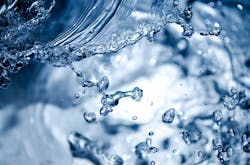EPA announces $1M in grants to help industries save water, reduce pollution
The U.S. Environmental Protection Agency (EPA) recently selected 11 organizations to receive a total of $1.16 million in grants to support pollution prevention activities.
The grants will fund cost-effective, replicable source reduction approaches enabling grant recipients and others to save energy and water, reduce pollution and improve public health.
The announcement coincides with the 30th anniversary of the Pollution Prevention Act and continued focus on national pollution prevention efforts.
EPA’s individual Source Reduction Assistance grants awards range from $43,000 to $174,000 for a two-year funding period. For these grants, EPA prioritized funding for projects that support research, education and/or training of innovative source reduction techniques. The grantees will document and share and source reduction best practices that are identified and developed through these grants so that others can replicate these practices and outcomes.
Grantee projects include:
Delaware State University
National Emphasis Area: Chemical Manufacturing, Processing and Fabrication
EPA Grant: $43,536
The grantee will work with several industry and agency partners to present a model for water and energy conservation in the agrochemical and pharmaceutical industry that includes facilitating pollution prevention education, informing local industry of the disparity between water supply and demand, creating a regional partnership network, and encouraging a culture of conservation. This project will employ real-time monitoring in manufacturing facilities to detect corrosion, microbial activity, salt content and other contaminants that can adversely affect water and energy consumption.
Slippery Rock University
National Emphasis Area: Food, Beverage Manufacturing and Processing and Metal Manufacturing and Fabrication
EPA Grant: $72,146
The grantee will provide four food and beverage manufacturers within the greater Pittsburgh area with industrial assessments recommending actions that will minimize operating costs and reduce the use of water, energy and hazardous substances in their processes. The grantee will also create a new intern pollution prevention program and will develop a best management practices training manual as part of this effort.
Northampton Community College
National Emphasis Area: Food, Beverage Manufacturing and Processing
EPA Grant: $72,146
The grantee will assist businesses in reducing their environmental footprint, operating expenses and liability risk by promoting sustainable economic development, encouraging good corporate citizenship, and delivering a cleaner, safer environment. The grantee aims to demonstrate that providing for a healthy economy and a healthy environment are not mutually exclusive goals by promoting Pollution Prevention technical assistance as an effective business development strategy. The project will target businesses in Pennsylvania’s ozone nonattainment counties to decrease human exposure to pollutants that contribute to the severity of respiratory diseases.
